Garden Maintenance in Southwark
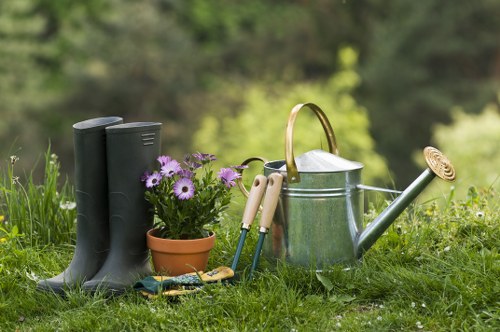
Maintaining a beautiful garden in Southwark requires a blend of passion, knowledge, and the right techniques. Whether you're a seasoned gardener or a beginner, ensuring your garden thrives throughout the year can be both rewarding and fulfilling.
Southwark's unique climate presents both opportunities and challenges for garden enthusiasts. From the mild winters to the warm summers, understanding the local weather patterns is crucial for effective garden maintenance.
In this comprehensive guide, we'll explore the essential aspects of garden maintenance in Southwark, providing you with actionable tips and expert advice to keep your outdoor space flourishing.
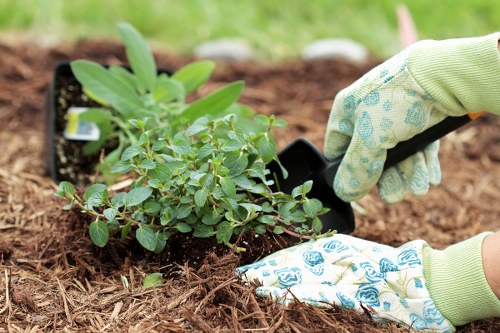
Understanding Southwark's Climate
Southwark enjoys a temperate maritime climate, characterized by moderate temperatures and adequate rainfall throughout the year. This climate is favorable for a diverse range of plants, but it also means gardeners need to be prepared for occasional fluctuations.
**Key climate factors** to consider include:
- Temperature variations between seasons
- Average rainfall and humidity levels
- Sunlight exposure and shade patterns
By tailoring your garden maintenance practices to these climatic conditions, you can ensure your plants receive the optimal care they need to thrive.
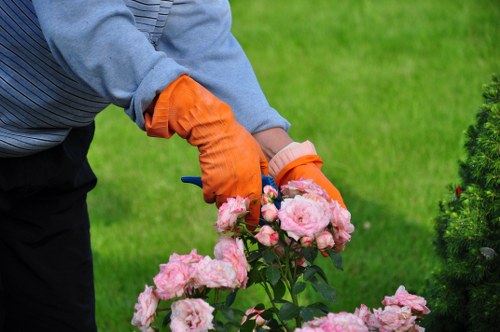
Essential Garden Maintenance Tasks
1. Regular Weeding
Weeds compete with your plants for nutrients and water, making regular weeding a critical maintenance task. Implementing a consistent weeding schedule helps keep your garden beds healthy and promotes the growth of desired plants.
2. Pruning and Trimming
Pruning helps maintain the shape and size of your plants, encourages healthy growth, and prevents diseases. Knowing the right time and method for pruning different plant species is essential for effective garden maintenance.
3. Soil Care
Healthy soil is the foundation of a thriving garden. Regularly testing soil pH, adding organic matter, and ensuring proper drainage are vital for maintaining soil health and supporting plant growth.
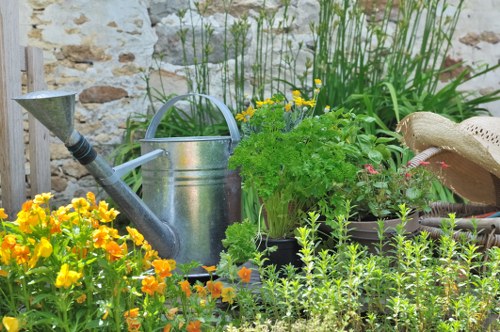
Seasonal Garden Maintenance Tips
Spring
Spring is the ideal time to prepare your garden for the growing season. Tasks include planting new flowers, fertilizing the soil, and pruning any remaining dead branches from winter.
Summer
During summer, focus on regular watering, mulching to retain moisture, and managing pests to protect your plants from heat stress and infestations.
Autumn
Autumn maintenance involves cleaning up fallen leaves, planting bulbs for next spring, and protecting plants from the upcoming colder weather.
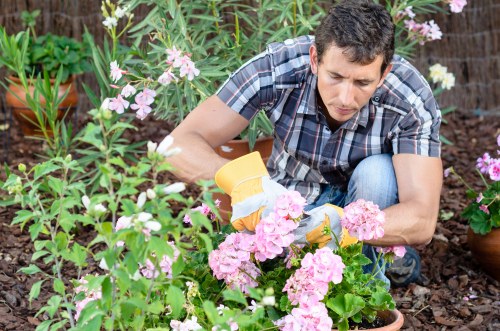
Choosing the Right Plants for Southwark Gardens
Selecting plant species that are well-suited to Southwark's climate ensures a resilient and vibrant garden. Consider native plants and those adapted to the local environment for easier maintenance and better growth.
- Roses: Classic and hardy, roses thrive in Southwark's climate with proper care.
- Lavender: Prefers well-drained soil and full sunlight, making it a great addition to any garden.
- Hostas: Ideal for shaded areas, providing lush foliage and low maintenance.
By choosing the right plants, you can create a garden that's both beautiful and easy to maintain.
Professional Garden Maintenance Services
While DIY garden maintenance can be fulfilling, sometimes enlisting the help of professional gardeners can make a significant difference. Experts offer specialized services tailored to your garden's unique needs, ensuring optimal health and aesthetics.
**Benefits of hiring professionals**:
- Expert knowledge of local plants and climate
- Access to specialized tools and equipment
- Time-saving and efficient maintenance
Investing in professional garden maintenance services in Southwark can transform your outdoor space into a thriving sanctuary.
Eco-Friendly Gardening Practices
Adopting eco-friendly gardening practices not only benefits the environment but also promotes a healthier garden. Implementing sustainable techniques can lead to long-term garden success.
Composting
Creating compost from kitchen scraps and garden waste enriches the soil with essential nutrients, reducing the need for chemical fertilizers.
Rainwater Harvesting
Collecting rainwater for irrigation conserves water resources and ensures your plants receive natural, chemical-free hydration.
Organic Pest Control
Using natural predators and organic treatments helps manage pests without harming beneficial insects or polluting the environment.
Maintaining Garden Tools and Equipment
Proper maintenance of your gardening tools is essential for effective garden upkeep. Regular cleaning, sharpening, and storage prolong the life of your tools and ensure they perform optimally.
**Tips for tool maintenance**:
- Clean tools after each use to prevent rust and corrosion
- Sharpen blades regularly for efficient cutting
- Store tools in a dry, protected area to extend their lifespan
Well-maintained tools make garden maintenance tasks easier and more enjoyable.
Creating a Maintenance Schedule
Establishing a garden maintenance schedule helps you stay organized and ensures that all necessary tasks are performed in a timely manner. A structured approach prevents overlooking important activities and keeps your garden in top condition.
Monthly Tasks
Focus on routine activities such as watering, weeding, and inspecting plants for signs of disease or pests.
Seasonal Tasks
Adjust your maintenance efforts according to seasonal changes, addressing specific needs like planting in spring or protecting plants in winter.
Long-Term Planning
Consider the growth patterns of your plants and plan for future maintenance needs to ensure continuous garden health and beauty.
Enhancing Garden Aesthetics
Aesthetics play a significant role in garden maintenance. Incorporating design elements and ensuring visual harmony can elevate the overall appeal of your garden.
Plant Arrangement
Strategically arranging plants based on height, color, and texture creates depth and interest in your garden space.
Hardscaping Elements
Adding pathways, seating areas, and decorative features enhances functionality and visual appeal.
Lighting
Outdoor lighting not only highlights key features but also extends the usability of your garden into the evening hours.
Dealing with Common Garden Problems
Every garden faces its set of challenges. Identifying and addressing common issues promptly ensures your garden remains healthy and vibrant.
Pest Infestations
Regular monitoring and implementing integrated pest management strategies help control pest populations without harming your plants.
Disease Management
Preventing plant diseases involves proper watering practices, good air circulation, and selecting disease-resistant plant varieties.
Weed Control
Consistent weeding and using mulch can suppress weed growth, reducing competition for your plants.
Sustainable Garden Practices
Embracing sustainability in garden maintenance not only benefits the environment but also leads to a more resilient and self-sustaining garden.
Native Plant Selection
Choosing native plants supports local biodiversity and requires less water and maintenance compared to non-native species.
Integrated Pest Management
Combining biological, cultural, and mechanical control methods reduces reliance on chemical pesticides, promoting a healthier ecosystem.
Energy Efficiency
Utilizing energy-efficient gardening tools and solar-powered lighting minimizes your garden's carbon footprint.
Conclusion
Effective garden maintenance in Southwark involves understanding the local climate, implementing regular maintenance tasks, and adopting sustainable practices. By following the guidelines outlined in this article, you can cultivate a thriving and aesthetically pleasing garden that enhances your outdoor living space.
Ready to transform your garden? Contact us today to book your garden maintenance service and experience the difference professional care can make!